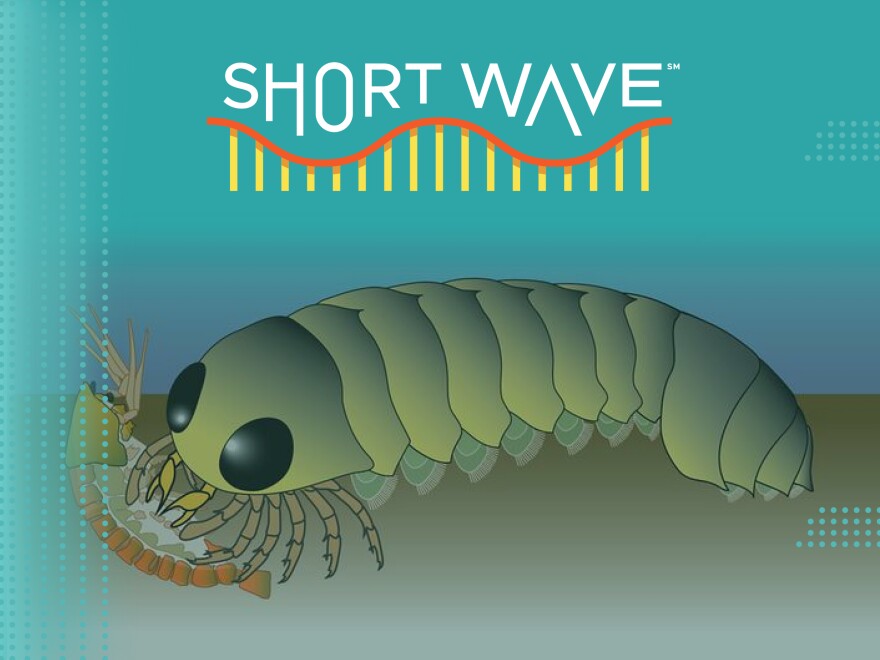Whether you love spiders or can't be within 10 feet of them, you probably think of them crawling around on land. And based on the fossil record, most researchers would probably say the same thing. For a long time, they've thought the earliest arachnid ancestors existed around 450 million years ago, living and diversifying exclusively on land.
But a new study out this week in the journal Current Biology suggests their brains may have originated much earlier, in the ocean.
The researchers re-examined a fossil from a now-extinct marine arthropod called Mollisonia symmetrica. It's thought to have existed during the Cambrian period, around 500 million years ago, when all animal life was still in the ocean.
When study author and neurophysiologist Nicholas Strausfeld looked at this Mollisonia fossil, he says it appeared to have a similar brain organization to arachnids — which include spiders and scorpions.
Strausfeld says while many Cambrian fossils, including the ancestors of present-day crustaceans, have a "front-to-back" arrangement, he and his co-authors saw the reverse in Mollisonia.
"The arachnid is the only group in which this linear brain has been flipped back," he says.
He says this organization suggests high speed and complex leg movements, for things like chasing prey or weaving webs.
One evolutionary biologist who did not work on the study, Alejandro Izquierdo Lopez, said in an email that this Mollisonia fossil is exceptional and that the findings could be exciting for the field. But he also noted that examining brains and nervous system tissue in fossils is a complex process.
It will take more research to potentially confirm the idea that Mollisonia is, in fact, the earliest arachnid ancestor and that arachnids originated in the ocean.
Want to hear more stories about the history of animals on Earth? Email us and let us know at shortwave@npr.org.
Listen to Short Wave on Spotify and Apple Podcasts.
Listen to every episode of Short Wave sponsor-free and support our work at NPR by signing up for Short Wave+ at plus.npr.org/shortwave.
This episode was produced by Rachel Carlson and Jordan-Marie Smith. It was edited by Rebecca Ramirez, Christopher Intagliata and William Troop. Tyler Jones checked the facts. Tiffany Vera-Castro and Robert Rodriguez were the audio engineers.
Copyright 2025 NPR






